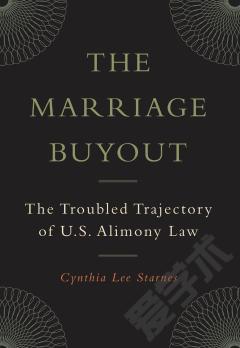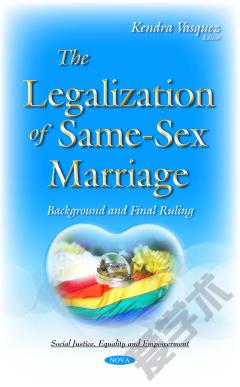Marriage Proposals: Questioning a Legal Status
The essays in Marriage Proposals envision a variety of scenarios in which adults would continue to join themselves together seeking permanent companionship and sustenance, linking sexual intimacy to a long commitment, usually caring for each other, and building new families. What would disappear are the legal consequences associated with marriage. No joint income tax return; no immigration privileges like the fiancee visa or the right to bring in a husband or wife; no special statuses for prison visits or hospital decisions; no prerogative to remain silent in court by claiming confidential marital communications; no pension entitlements; no marital benefits and detriments regarding criminal or civil liability.The anthology makes a unique contribution amid the two marriage furors of the day: same-sex marriage and the Bush Administration's marriage movement (that marrying is good and more marriages would be better for society). Abolishing the legal category of marriage is the only policy suggestion in current American discourse that speaks to both causes. Activists on both sides of the same-sex marriage fight, along with marriage movement partisans, all seek improvement through law reform. Marriage Proposals gives them a viable reform-abolition of marriage as a legal status-for fighting battles in the courtroom and the streets.Contributors include Anita Bernstein, Peggy Cooper Davis, Martha Albertson Fineman, Linda C. McClain, Marshall Miller, Lawrence Rosen, Mary Lyndon Shanley, and Dorian Solot.
{{comment.content}}








 京公网安备 11010802027623号
京公网安备 11010802027623号